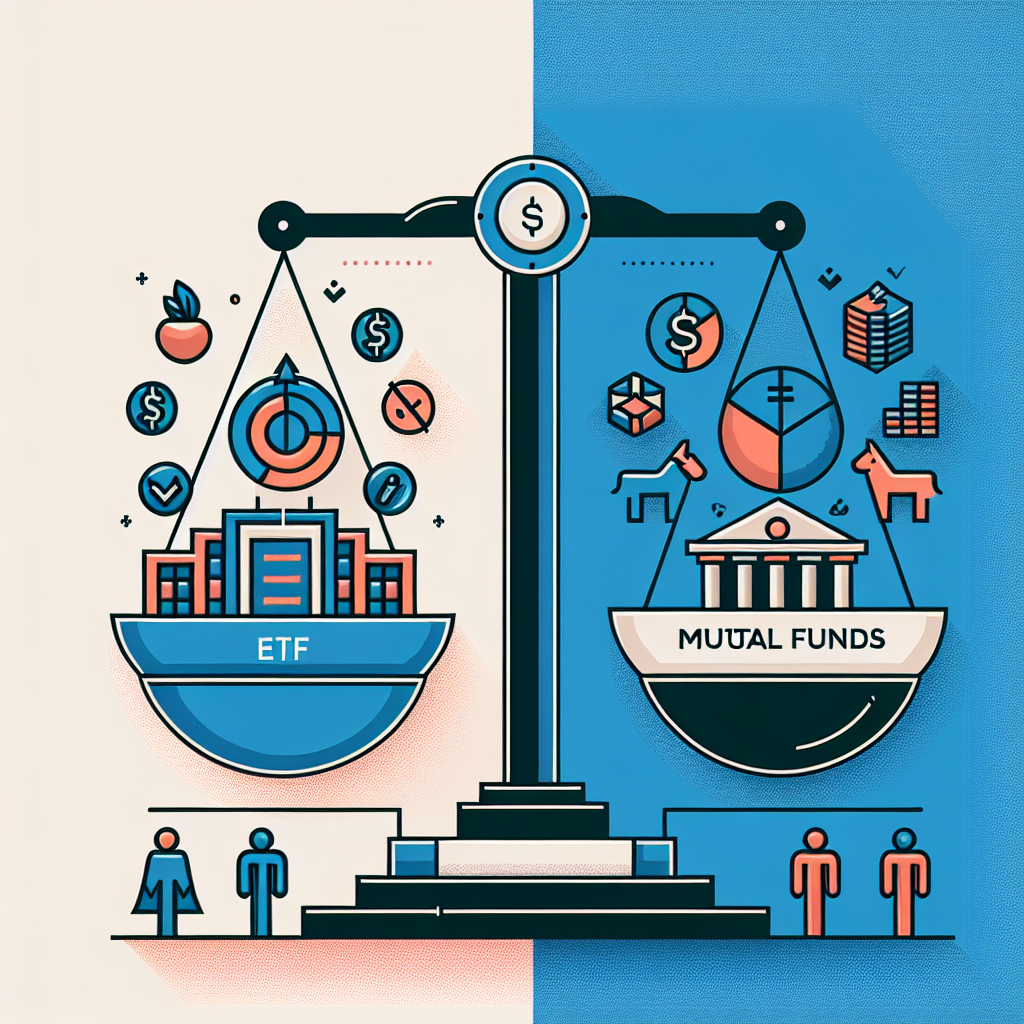
ETF vs Mutual Fund: Which One Fits Your Strategy?
Understanding the Basics: ETFs and Mutual Funds
What is a Mutual Fund?
- Managed actively: Fund managers decide which securities to buy or sell.
- Pricing: Mutual funds are priced once at the end of each trading day based on their Net Asset Value (NAV).
- Minimum investments: Typically require a minimum initial investment, which can range from a few hundred to several thousand dollars.
- Fees: Often carry expense ratios and sometimes sales loads (front-end or back-end).
What is an ETF?
- Passive management: Most ETFs aim to replicate the performance of specific indices or asset classes.
- Trading: Bought and sold throughout the trading day at market prices, which can fluctuate above or below their NAV.
- Lower minimums: Often no minimum investment beyond the cost of one share.
- Cost-efficient: Tend to have lower expense ratios compared to mutual funds due to their passive management style.
Key Differences Between ETFs and Mutual Funds
Trading and Liquidity
Cost and Fees
Management Style
Tax Efficiency
Minimum Investment Requirements
Which Fits Your Investment Strategy?
Are You a Hands-Off Investor Looking for Simplicity?
Do You Want Flexibility and Lower Costs?
Due Diligence and Management Style
Tax Planning and Efficiency
Time Horizon and Investment Goals
Pros and Cons Summary
| Feature | Mutual Funds | ETFs |
|---|---|---|
| Trading | Once daily after market close | Throughout trading hours |
| Cost | Higher expense ratios, sales loads | Lower expense ratios, no sales loads |
| Management | Active | Passive (most), some active |
| Tax Efficiency | Less efficient, more capital gains distributions | More efficient, fewer distributions |
| Minimum Investment | Often higher minimums | Can buy single shares |
| Suitability | Long-term, hands-off | Active trading, cost-conscious |
Making the Right Choice for Your Financial Future
Additional Tips for Investors
- Assess your risk tolerance: Understand how much volatility you’re comfortable with before selecting aggressive or conservative funds.
- Diversify: Don’t rely solely on one type of fund. Combining mutual funds and ETFs can add resilience to your portfolio.
- Research expenses: Always compare expense ratios, loads, and transaction costs.
- Stay informed: Follow market trends and regularly review your investments to ensure they align with your goals.
- Seek advice: Consider consulting a financial advisor for personalized guidance tailored to your financial situation.


